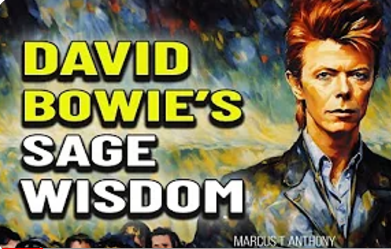I wrote this oped article (below) shortly after TED made the decision to remove two talks by Rupert Sheldrake and Graham Hancock from its main site and YouTube. I sent it to many newspapers, but unfortunately nobody responded. Still, the good news is that I can share it with you here (feel free to share it wherever you like). I also made further comment about the TED saga here.
Summary: The TED organisation’s decision to take down two videos by radical thinkers Rupert Sheldrake and Graham Hancock raises genuine questions about the way knowledge is now created and distributed. Length, 1000 words.
Zen Buddhist Shunryu Suzuki observed that “In the mind of the novice there are many possibilities, but in the mind of the expert there is but one.” Suzuki may well have repeated these words if he’d been alive over the past few days, even as a quiet storm brewed on a very modern forum: the internet. The online drama has involved the TED organisation’s decision to take down two videos by Rupert Sheldrake and Graham Hancock from YouTube and the main TED site. Sheldrake’s talk was about “the science delusion”, and questioned ten fundamental assumptions which underpin modern scientific thought. These included the presumption that consciousness resides only in the brain, whether the universal laws such as the speed of light are constants, and whether the total amount of matter and energy in the universe always stays the same. Hancock’s talk “The war on consciousness” delved into the uses of drugs in raising human consciousness.
TED’s decision emerged after strong criticism of the talks by committed skeptics Jerry Coyne and PZ Meyer (It is unclear whether other vested interests lie behind them). They protested that the talks were unscientific. TED opened the debate to the public, and there were hundreds of mostly supportive comments posted for Sheldrake and Hancock. However, the videos soon disappeared from YouTube and TED’s main video section, and were placed in an obscure location. TED commented that the decision was made “after due diligence, including a survey of published scientific research and recommendations from our Science Board and our community”. The speakers had “crossed the line into pseudoscience”. Both talks, TED claimed, “contained serious factual errors that undermine TED’s commitment to good science”. Only a few days had passed since the issue had gone public.
Sheldrake wrote to TED asking why he wasn’t consulted. Hancock went very public and commented on the TED site itself. He alleged that TED had made several blatant errors describing the content of his talk. Accusing the organisation of defaming him, he demanded the organisation address his concerns.
Public support for the two rogue philosophers has continued to be overwhelming, with nearly a thousand comments posted on the TED site. They almost universally condemn the move. On reddit.com a similar discussion produced 173 mostly supportive comments. A comment by a poster named Samual Bielski typified the reaction: “Shame, shame, shame (on TED). You have lost all credibility with me and I’m sure to many others.”
Sheldrake is a former Cambridge academic with a PhD in plant physiology. He first came to prominence in the 1980’s when the editor of Nature called Sheldrake’s A New Science of Life “a good book for burning.” Sheldrake has always been radical. He has conducted experiments into human and animal telepathy. He once tested the popular idea that you “just know” who is calling before you answer the phone. Sheldrake’s research found that people can “guess” who is calling forty-five per cent of the time, when there are four different callers. This is massively above chance.
The great irony in this saga is that it only adds weight to the argument put forward by Sheldrake that establishment science has become the new Church, ready to silence those with new ideas that challenge the entrenched scientific materialism of so many public, educational and scientific institutions. Notably, Sheldrake and Hancock’s talks were given at a London TEDx event in January entitled: “Visions for Transition: Challenging existing paradigms and redefining values for a changing world.” The implications are disturbing. If one cannot legitimately ask open questions about the way science is conducted, or about discrepancies in data, then science is no longer open inquiry. It is a set of unquestionable dogmas founded in an unconscious paradigm. Tellingly, this was the central point in Sheldrake’s talk that has been removed.
The truth is that many of those in the scientific community making truth claims about Sheldrake’s domains of expertise are poorly informed. On his website, Sheldrake mentions an incident where he agreed to meet with skeptic Richard Dawkins, as part of the latter’s television series, The Enemies of Reason. Sheldrake came prepared to discuss the scientific evidence for the existence of telepathy, including his own, having conducted several peer-reviewed experiments. But according to Sheldrake, Dawkins refused to address the science, saying that this was not the purpose of the program. Sheldrake states that Dawkins simply had not read the literature on the topic. Ironically, Dawkins is the former Emeritus Professor of the Public Understanding of Science at Oxford.
What is the reason for this aversion to open discussion of such matters in many scientific communities? The answer, in part, is paradigm blindness. Science has increasingly ignored intuitive ways of knowing over the last few centuries. Thomas Kuhn noted in the 1960s that paradigms not only restrict conclusions; they also delimit the kinds of questions deemed acceptable. And there is nothing which will kill open debate faster than silencing those who wish to ask questions.
Then there is the serious issue of science and academia’s ties to government and big business. Science, as practiced today, is not so much open as constrained by the organisations and markets which feed it. The relationship is uncomfortably symbiotic. The corporations and government funding bodies have the money, while the universities have the prestige. With the current TED issue, what is happening with vested power groups behind the scenes is simply not transparent.
Perhaps it is time for science to loosen its materialistic shackles and begin to see the cosmos afresh. The mechanistic universe is what I call a “used future”. It is merely an unconscious repetition of a past that has already outlived its usefulness.
I discuss many such ideas in Futures Studies, and I generally get a very open reception. Then again, scientific conservatives and skeptics don’t tend to enrol in Foresight classes or attend Futures Studies conferences. They don’t like talking about the future – it’s too uncertain, and you can’t control it.
[facebook]
[twitter name=”marcustanthony1″]
[retweet]
[buzz]
[stumble]
[digg]






11 thoughts on “TED, knowledge, and power”
Yes, once I realized the illusion of manifestation and the staged reality of this earth for schooling, I realized most science is faulty. However would it be possible to have any truthful conclusion if all your measurements are based on illusion? I am not surprised by TED, as I seldom hear a talk from anyone who sees the illusion. It is nice to know that you and so many others protested TED’s ignorance. thank you.
Pingback: Censoring the future of knowledge? | MindFutres
Pingback: TED, Knowledge and Power | Orwellwasright's Weblog
I am writing from mainland China. Academics here are also divide with regard to ideas posited by thinkers like Sheldrake. His work is internationally known and opinions can be strongly in favor or against. University classes reflect this division by either partaking in practical training with his theories or dismissing them as pseudoscience. The crux of the matter might lie in a philosophy I rather not specify in text, I allude by asking; “Is youtube available everywhere?”
Preferably,
Anonymous
Good to hear from someone from China, Loaf! I lived in China and surrounding areas for 13 years, and have recently returned to Australia. My wife is Chinese.
Mechanistic science has spread from the west to many countries now. In fact I have found it easier to talk about these ideas amongst intellectuals in the west. In China the government is quite hostile to anything remotely “spiritual” in nature, and the macropolicy of “scientific development” explicitly valorises scientific materialism. Most of the the members of the Politburo are Tsinghua graduates, so they are technocrats. I believe that Xi JinPing is a graduate of Beida. Is that correct? Hopefully he might be a little more liberal.
Marcus
Rigorous science has produced the very tools (computer, Internet) you use to attack it. Seems to contradict your claim that Science is a Church of censorship.
I do not deny scientific progress and the benefits of it, and I do not argue that science is a Church of censorship – either here in this post or anywhere else. These are both straw men. I am simply stating how I see the problem with TED in this situation is framed within self-limiting power structures, and these affect all of us regardless of worldview. I’ll outline this in more detail in posts which follow. BTW, “science” is not a synonym for “mechanistic materialism”.
Your reply is typical of (edit)…
I’m happy to publish any of your comments that are respectful, Hugh. It is quite possible to be “critical” without personalising things or resorting to insults.
Marcus
Pingback: The way out of the TED mess, #1: The Problem | MindFutres
Pingback: TED's backflip on Sheldrake’s The Science Delusion - Broken Box Radio